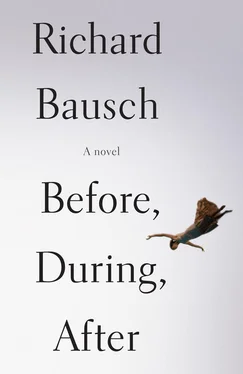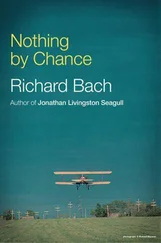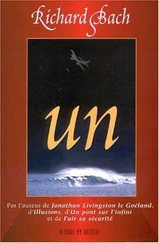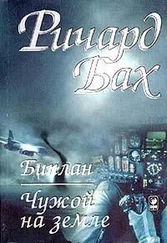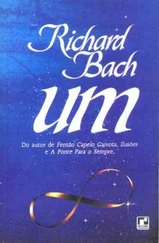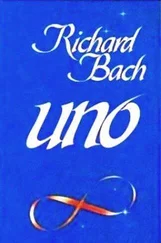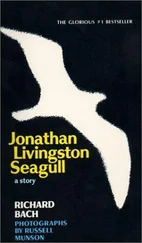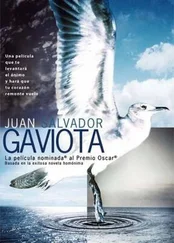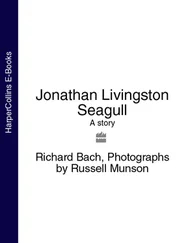“There’s really not much to tell.”
“Hey — this is me you’re talking to.”
“Well, but there really isn’t much to tell.”
Ruhm merely gazed at him, smiling.
“It stopped meaning anything to me, you know, Theo? I can’t explain it beyond that.”
“You turning into an atheist, like your old man?”
“Oh, no. Not at all.”
“He’s the most religious atheist I ever saw. Been arguing with God his whole life. I still get pissed at him when he starts in about it. And I still love him like a brother.”
“He’ll think he’s won something with my leaving the priesthood.”
“So,” Theo Ruhm said. “How do you— quit , exactly, in your line of work.”
“I went to see my superior. The — the senior warden of the vestry. Who’s a friend.”
“And what did he say?”
Faulk looked at him. “You don’t really want to hear all this do you? Today? ”
“You don’t think I’d be interested about what you go through?”
“You’re a good man, Mr. Ruhm.”
“Well,” Theo went on, raising his drink, “the prohibitionist aunt didn’t come, so we can have as much as we want of this. And it’s a happy time. I’m sorry Leander’s missing it. I was looking forward to meeting Trixie and having her meet my lady.”
“I was looking forward to seeing them, too,” Faulk said. “I’ve only spoken to Trixie on the phone a couple times myself.”
“I hope you’re happy, Michael,” said Ruhm, patting his upper arm.
“I am. And I’m happy for you, too, Theo.”
The Ruhms had been together only a couple of years, the boys’ mother having left Theo a decade ago to pursue happiness elsewhere. The phrase went through Faulk’s mind, an evil little turn, and he grasped the other’s hand and congratulated him on the marriage of his youngest son. The boys’ mother, Cheryl, was on the other side of the room celebrating with her side of the family and her new husband, who was a football coach. The new husband’s capacity for this kind of cheerfulness was a cause for worry, and even now he lifted a cocktail and drained it. Faulk saw this, wondering at the failure of kindness in everything he felt, standing there with his glass of wine in his hand and his changed life showing in his face. He wished Natasha could be with him, and the thought of her soothed him.
“You’ll like Natasha,” he said to Ruhm, but the older man was already distracted, greeting a business associate whose bushy red mustache looked as though it had been glued on, completely covering his mouth.
Faulk moved to another part of the room. A band was setting up, five young men with the apathetic look of being hired for the purpose of background music.
Faulk watched them, wishing he was in Tennessee. Or Jamaica. He had a glass of bourbon at the cash bar, then switched back to wine.
And he faltered through the afternoon, repressing the bad temper that troubled him when his new circumstance surfaced in the talk, striving for patience with his own wearisome explanations, the same anemic phrases others used over and over, phrases he hated— self-fulfillment, new challenges, time to move on —phrases that, discouragingly enough, contained an element of truth. He drank several more glasses of Burgundy before the sit-down for the rehearsal dinner. It was not noticed, particularly, because there was plenty to drink and no one was holding back. But when, at dinner, he realized that the alcohol was having an effect on him, he removed himself quietly and took a cab back to the hotel, where he had another whiskey and went to bed with the room spinning.
There, sleepless, he thought of his last meeting with Father Clenon, where he actually said the words “I want to renounce my vows.” He had come back from Washington, and Natasha. He went over the failures of his priesthood, and talking about it was like getting out of jail. Father Clenon stared at him for a long time. Finally he said, “Take a month? For me?”
“Let me do it now,” said Faulk. “For me.”
The other continued to stare, and there was something bitterly forbearing in his gaze. “Write the letter when you’re sure,” he said. “Let’s just put it that way.”
And so Faulk had waited through that following week.
Now, in the dark of predawn, he tried to read and couldn’t. His mind kept wandering to the strangeness of being outside the fold — someone had used the term — and to random images from the evening before. He had seen so many wedding gatherings. The blur of them made his mind ache.
How tired he was of being the one to whom others felt free to unpack their sorrows. Recognizing the self-centeredness of the feeling, he tried to think of something else. But it was true that while his own marriage was deteriorating he had listened to the marriage troubles of countless others, had endured his own suffering all alone, going through each day with the weight of it on his heart. And Joan was discreet. No one had the slightest inkling. Life went on that way for the more than two years it took her to decide.
He turned the television on and flicked through the channels. Old shows, news, commercial broadcasts, movies. Everything in progress, nothing beginning. He felt locked away from the world where all this was happening. It was unnerving, and yet vaguely agreeable, like being proved right about something.
Ten minutes after 5:00 a.m.
He turned the television off, took a Xanax, and lay down to try going back to sleep. And sleep came, with stealth. He saw Natasha standing by the window, going on about the pretty water of the river. She said “river” and he corrected her. It’s not a river, darling .
Yes, it is , she said with unfamiliar insistence.
No, it’s the Mediterranean Sea , he told her, aware now that this was a dream, and yet feeling quite certain that what he had said made perfect sense. In the next instant, he experienced the suspicion that he was wrong and felt an unreasonable terror of the possibility. It was the Life or Death of dreams, and he was casting about in his mind for the answer, which kept eluding him. Finally he could only repeat helplessly “The Mediterranean Sea,” like a prayer, the one explicable thing in the dream, and then that was obliterated, too, and he was not even dreaming anymore. Mysteriously, he was also aware of the blankness.
He woke shortly after nine with a sense of having worked his way up from an awful depth to consciousness. But the headache was gone. Rising, a bit groggy from the drug, he stumbled to the window and looked out. It was a perfect day for a wedding. “There it is,” he said aloud, smiling at the infinite rinsed sky stretching away over the tall roofs of the city with the small cylindrical water tanks and thickets of antennas and wires. “The Mediterranean Sea.”
It came to him that he did not feel like attending a wedding, even this one, with its happy couple and proud father. Just now, the thought oppressed him.
He made his way to the bathroom and cleaned his teeth, then moved to the closet and started to dress, thinking of calling Natasha, though it was well past the time. She would already have left for the beach. He decided to try anyway, wanting to tell her about the dream. A recorded voice said that the volume of calls was too much and to try the number later. He pushed the button for the front desk and waited. No answer. Finally he lay back down, hands behind his head, and drifted a little, intending to sit up and try again in a moment. He looked at his watch and remembered that she was an hour behind him.
2
Because it was the day of the wedding in New York, Natasha did not expect to hear from him. This was her last day in Jamaica. She and Constance went out to the beach and had an hour sunning themselves and reading. Natasha stepped into the clear shallows and looked down at her feet in the sand. The water was cold, clean, and lucid, with its lime green color as you looked across it, and you could almost see the place in the distance where it began turning to the deepest blue. The sand was smooth and perfectly consistent, as though it had been designed and produced for human feet to track in it. She turned and looked back at Constance, who lay on her multicolored blanket, one arm across her face, one leg bent at the knee. The picture of relaxation. Natasha wondered why people weren’t strolling down to the beach, as on all the other mornings. “You suppose this is some kind of holy day?” she called to her friend. Constance raised her head and looked at her, then held both hands up, a shrugging motion, and went back to her sunbathing.
Читать дальше
